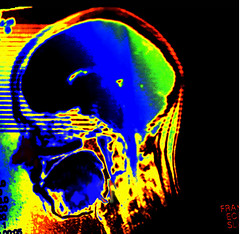
Just announced on PRNewswire the National Institute on Disability and Rehabilitation Research of the U.S. Department of Education awarded a $2.28 million federal grant to Kessler Foundation. The five-year grant funds the Northern New Jersey Spinal Cord Injury System (NNJSCIS), a comprehensive system of care, research, education and dissemination aimed at improving quality of life for people with spinal cord injury. The NNJSCIS is a cooperative effort of Kessler Foundation, Kessler Institute for Rehabilitation, and the University of Medicine and Dentistry of New Jersey in Newark.
“Our collaborative system is excited to receive this recognition of our comprehensive services and research activities in the realm of spinal cord injury,” said Steven Kirshblum, MD, co-director of the NNJSCIS. “We look forward to continuing our dedication to individuals with these catastrophic injuries.” Dr. Kirshblum is medical director of Kessler Institute for Rehabilitation and director of SCI Services.
NNJSCIS collects patient data from the time of injury through long-term followup, which is contributed to the National SCI Statistical Center. Data are used to identify areas where investigation is needed.
“With this grant, we can continue to examine obstacles to recovery and full participation in our community,” said Trevor Dyson-Hudson, MD, co-director of the NNJSCIS and interim director of SCI Research at Kessler Foundation. “Everything changes for the person with spinal cord injury, not just mobility,” he stressed. “That’s why we also look at factors that are important to overall quality of life like access to medical care, pain management, employment and aging with a spinal cord injury. What we learn here in New Jersey furthers research for all people with spinal cord injury.”
Kessler will conduct a study of a combination therapy using dalfampridine—a drug recently approved to improve walking in patients with multiple sclerosis—with a standardized program of locomotor training, a rehabilitative intervention that has improved walking and other functional outcomes in persons with spinal cord injuries.
“I’m incredibly proud to represent the Kessler Foundation in Congress and to champion their tireless efforts to improve the lives of those living with spinal cord injury and traumatic brain injury,” said U.S. Rep. Bill Pascrell, Jr. (D-NJ-8). “This new research study has the potential to provide new breakthroughs in our understanding of spinal cord injury. It will surely add to the impressive body of work that Kessler Foundation and Kessler Institute have accomplished in improving rehabilitation for those affected by spinal cord injuries.”
Patients with TBI and SCI have a friend in the Tutor system. These newly developed devices are comfortable braces or (in the case of the HandTutor) an ergonomic glove that, together with powerful dedicated rehabilitation software, optimize the patient’s motor, sensory and cognitive performance and allows for the patient to better perform everyday functional tasks to improve their quality of life. The software uses games to assist the patient in renewing his movement skills.
These innovative devices implement an impairment based program with augmented feedback and encourage motor learning through intensive active exercises. These exercises are challenging and motivating and allow for repetitive training tailored to the patient’s performance. The system also includes objective quantitative evaluations that provide the therapist information to customize the most suitable rehabilitation program to the patient’s ability. Currently part of the rehabilitation program of leading U.S. and foreign hospitals the Tutors are also used in clinics and at home through the use of telerehabilitation.
No comments:
Post a Comment